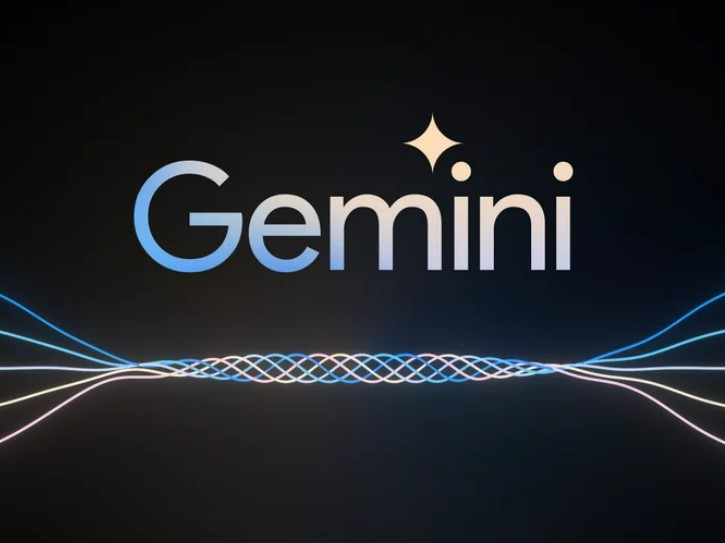Google’s Gemini rebrand shows it’s not afraid to go back to the drawing board to secure generative AI success
Google announced Bard and Duet AI will be rebranded to ‘Gemini’ as the tech giant looks to create a more concise, aligned brand appeal for its generative AI toolkit
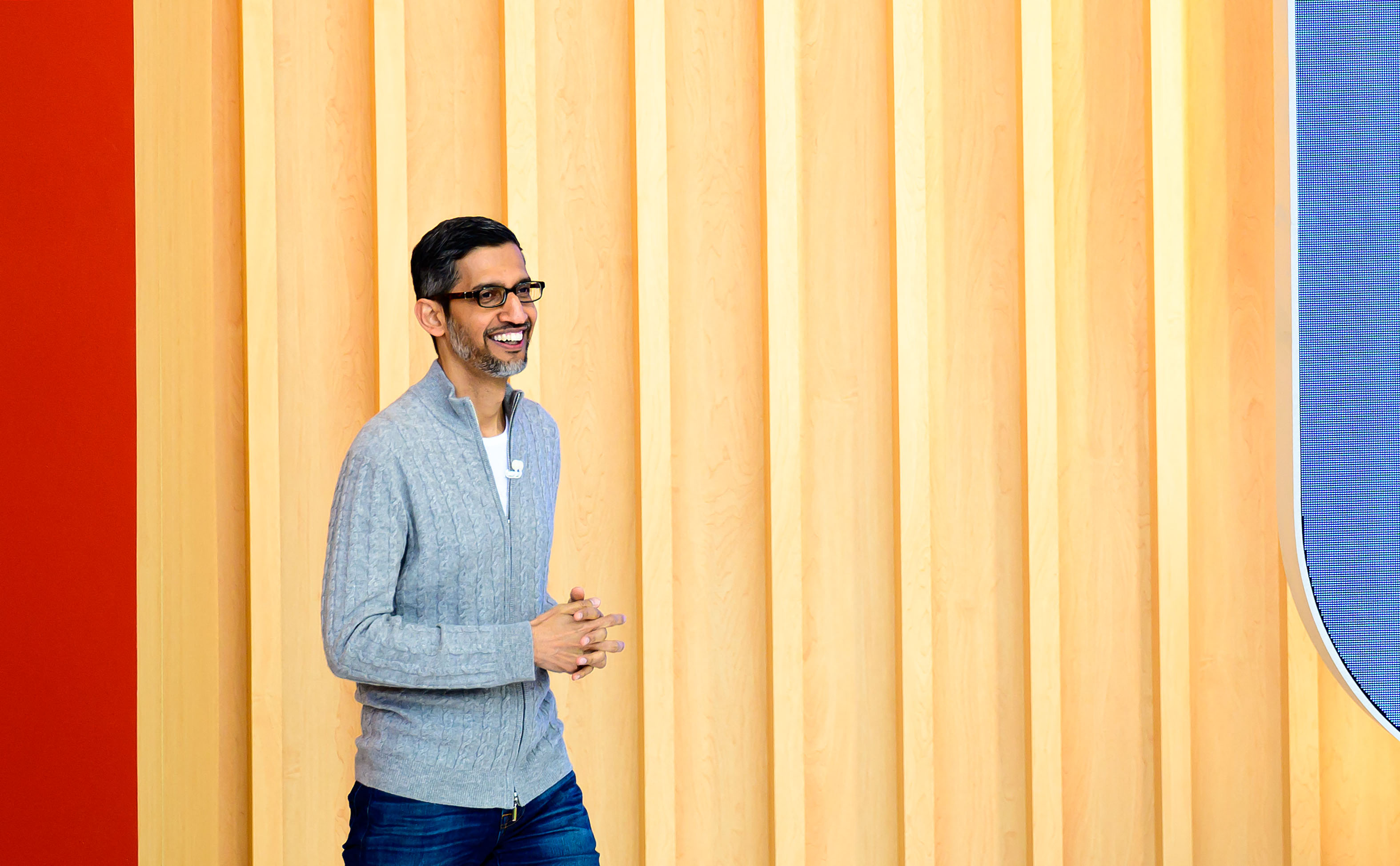

Google is no stranger to scrapping or rebranding product lines, and last week offered another prime example when the tech giant announced it plans to rename Bard, its flagship generative AI chatbot, to Gemini.
In December, the company waxed lyrical about its Gemini large language model (LLM) range, which it clearly aims to position as a direct competitor to OpenAI’s GPT-4.
The largest model in the Gemini range, Ultra 1.0, was the first to outperform human experts on massive multitask language understanding (MMLU), which uses a combination of subjects to test a model’s knowledge and problem-solving capabilities.
From a branding perspective, it makes sense for Google to rename Bard to Gemini, according to Chirag Dekate, VP analyst at Gartner. Fundamentally, the company wants to create a clearer, more aligned portfolio for its flagship AI services and features.
2023 was a year of ‘ideation’ in generative AI, Dekate told ITPro, and the rush to roll-out new products meant that many of the leading providers in the space weren’t afforded ample time to formulate a clear-cut brand ‘image’ for products, which in this instance Google appears to have struggled with.
“If you saw what was happening in 2023 from a cloud provider and hyperscaler perspective, the pace of innovation far exceeded product management and, more importantly, product marketing capabilities,” he said.
“We saw many of them try to outcompete one another by getting technologies out the gate faster, sooner.”
Get the ITPro daily newsletter
Sign up today and you will receive a free copy of our Future Focus 2025 report - the leading guidance on AI, cybersecurity and other IT challenges as per 700+ senior executives
But there’s more to the move than just a simple change of terminology - Google is also changing what’s under the hood of its AI products, Dekate added.
When Bard launched in early 2023, the AI assistant used Google’s LaMDA large language model. This latest change, however, will see the chatbot underpinned by the more powerful Gemini range.
Bard isn’t alone in this rebranding effort, either. Duet AI, which much like ‘Copilot’ at Microsoft has been woven into the very fabric of Google’s core product offerings, such as Workspace and Google Cloud Platform, will also be subject to the transition.
“Duet AI will become Gemini for Workspace, and soon consumers with the Google One AI Premium plan can use Gemini in Gmail, Docs, Sheets, Slides, and Meet,” the company said last week.
“For Cloud customers, Duet AI will also become Gemini in the coming weeks.”
Was Google hasty with its Duet and Bard naming?
Such a comprehensive rebranding begs the question of what exactly Bard and Duet AI were meant to represent for Google. It could be argued that they were somewhat of a stopgap until the tech giant could build up its capabilities.
It’s no secret that Google was broadsided by Microsoft in late 2022 with the launch of ChatGPT, and since then the latter has stormed its way to an emphatic lead in the generative AI race.

In recent months, Google and AWS have both clambered to keep pace with Microsoft, which in January surpassed Apple as the world’s most valuable company - and generative AI success was a key factor in this.
In December 2022, Google was reportedly in a state of ‘code red’ as the tech giant looked to meet the challenge posed by ChatGPT developments.
The company was said to have reassigned internal departments to help drive the development and roll-out of new AI products to keep pace with Microsoft.
CEO Sundar Pichai was directly involved in this rapid pivot to generative AI development, internal memos suggested at the time, with the New York Times reporting that he had “upended” the work of several divisions in the company.
“From now until a major conference expected to be hosted by Google in May, teams within Google’s research, trust and safety, and other departments have been reassigned to help develop and release new AI prototypes and products,” the NYT reported at the time.
Of course, it's not uncommon for major rebrandings to happen. Microsoft did the same in November 2023, dropping the Bing Chat branding to Copilot to create a more aligned image for its flagship feature.
Going back further, it made the decision to cut the famous 'Office 365' name in favour of 'Microsoft 365'.
Google Workspace and cloud users will still have the staple generative AI features, just underpinned by a different model and brand name.
Dekate noted, however, that this rebranding also represents a ‘re-architecting’ of its range of generative AI services. This makes sense given the rapid change in expectations from enterprise customers over the course of the last year.
The experimentation stage, for many, has passed. Now they want to unlock the benefits often associated with generative AI - and with the Gemini rebrand, the firm is finally at a stage to provide a comprehensive portfolio of products
RELATED WHITEPAPER
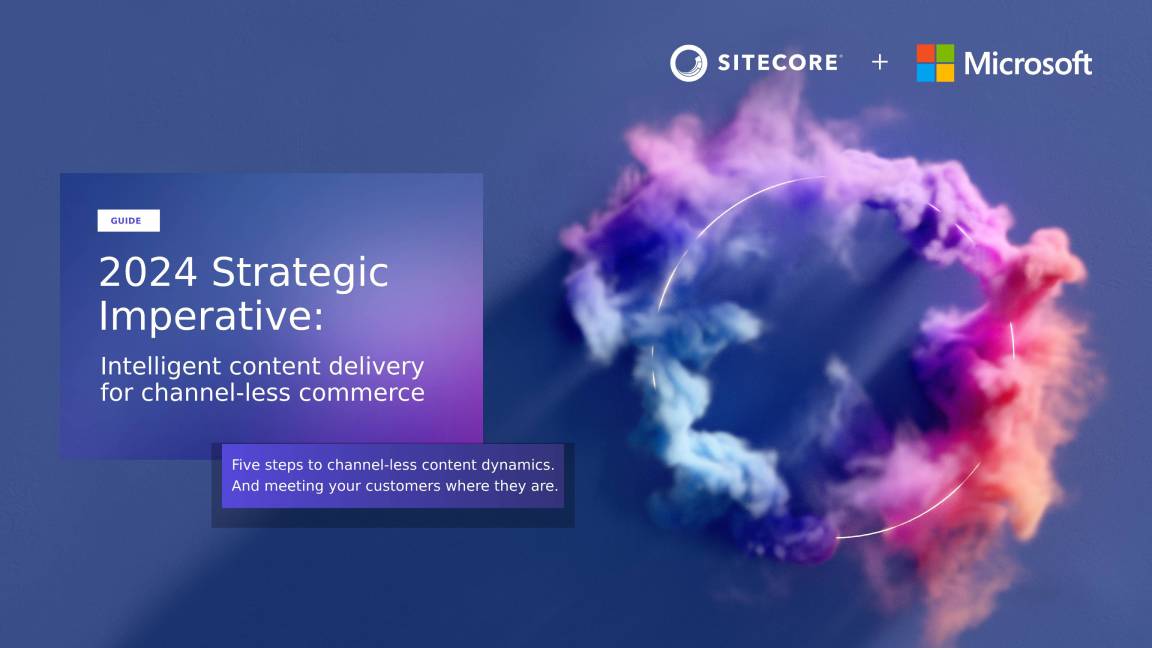
“It is incumbent upon service providers to deliver the best that enterprises can leverage and create a greater value for their own customers and stakeholders,” he said.
“So Gemini is, in my view, much more than a rebrand. It’s Google showcasing its AI native muscles and basically showcasing to the world what Google said at Gemini’s launch that this is the beginning of a Gemini era.”
In the year ahead, Google appears keen to create a ‘Copilot’ effect with its AI brand image. Microsoft has its flagship Copilot range, powered by GPT-4 and embedded across its core product offerings such as Windows and Microsoft 365.
With Gemini, Google now has its one-stop-shop for all things generative AI across its portfolio.

Ross Kelly is ITPro's News & Analysis Editor, responsible for leading the brand's news output and in-depth reporting on the latest stories from across the business technology landscape. Ross was previously a Staff Writer, during which time he developed a keen interest in cyber security, business leadership, and emerging technologies.
He graduated from Edinburgh Napier University in 2016 with a BA (Hons) in Journalism, and joined ITPro in 2022 after four years working in technology conference research.
For news pitches, you can contact Ross at ross.kelly@futurenet.com, or on Twitter and LinkedIn.
-
 Bigger salaries, more burnout: Is the CISO role in crisis?
Bigger salaries, more burnout: Is the CISO role in crisis?In-depth CISOs are more stressed than ever before – but why is this and what can be done?
By Kate O'Flaherty Published
-
 Cheap cyber crime kits can be bought on the dark web for less than $25
Cheap cyber crime kits can be bought on the dark web for less than $25News Research from NordVPN shows phishing kits are now widely available on the dark web and via messaging apps like Telegram, and are often selling for less than $25.
By Emma Woollacott Published
-
 DeepSeek and Anthropic have a long way to go to catch ChatGPT: OpenAI's flagship chatbot is still far and away the most popular AI tool in offices globally
DeepSeek and Anthropic have a long way to go to catch ChatGPT: OpenAI's flagship chatbot is still far and away the most popular AI tool in offices globallyNews ChatGPT remains the most popular AI tool among office workers globally, research shows, despite a rising number of competitor options available to users.
By Ross Kelly Published
-
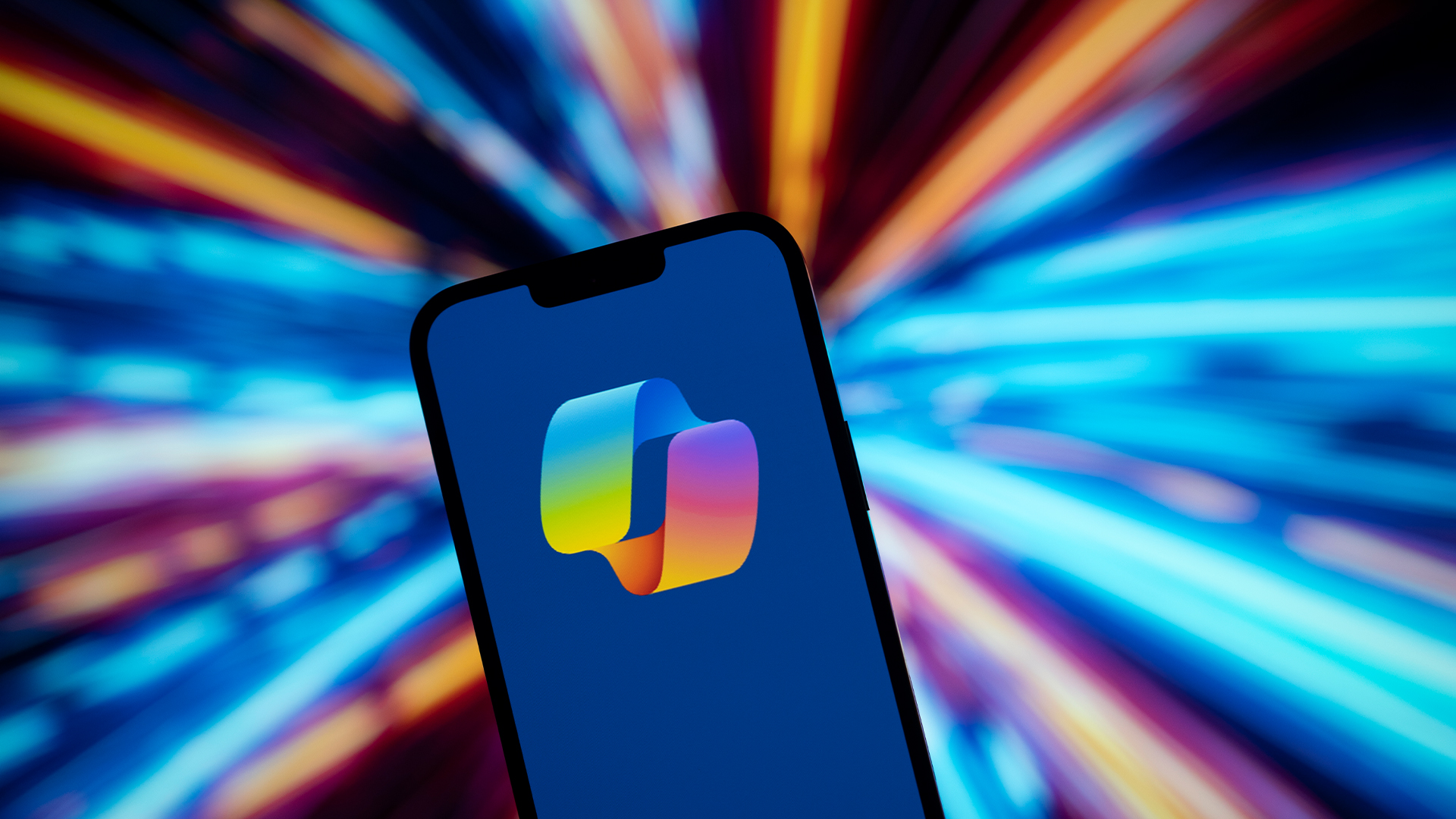 Microsoft launches new security AI agents to help overworked cyber professionals
Microsoft launches new security AI agents to help overworked cyber professionalsNews Microsoft is expanding its Security Copilot service with new AI agents to help overworked IT teams deal with surging security threats.
By Bobby Hellard Published
-
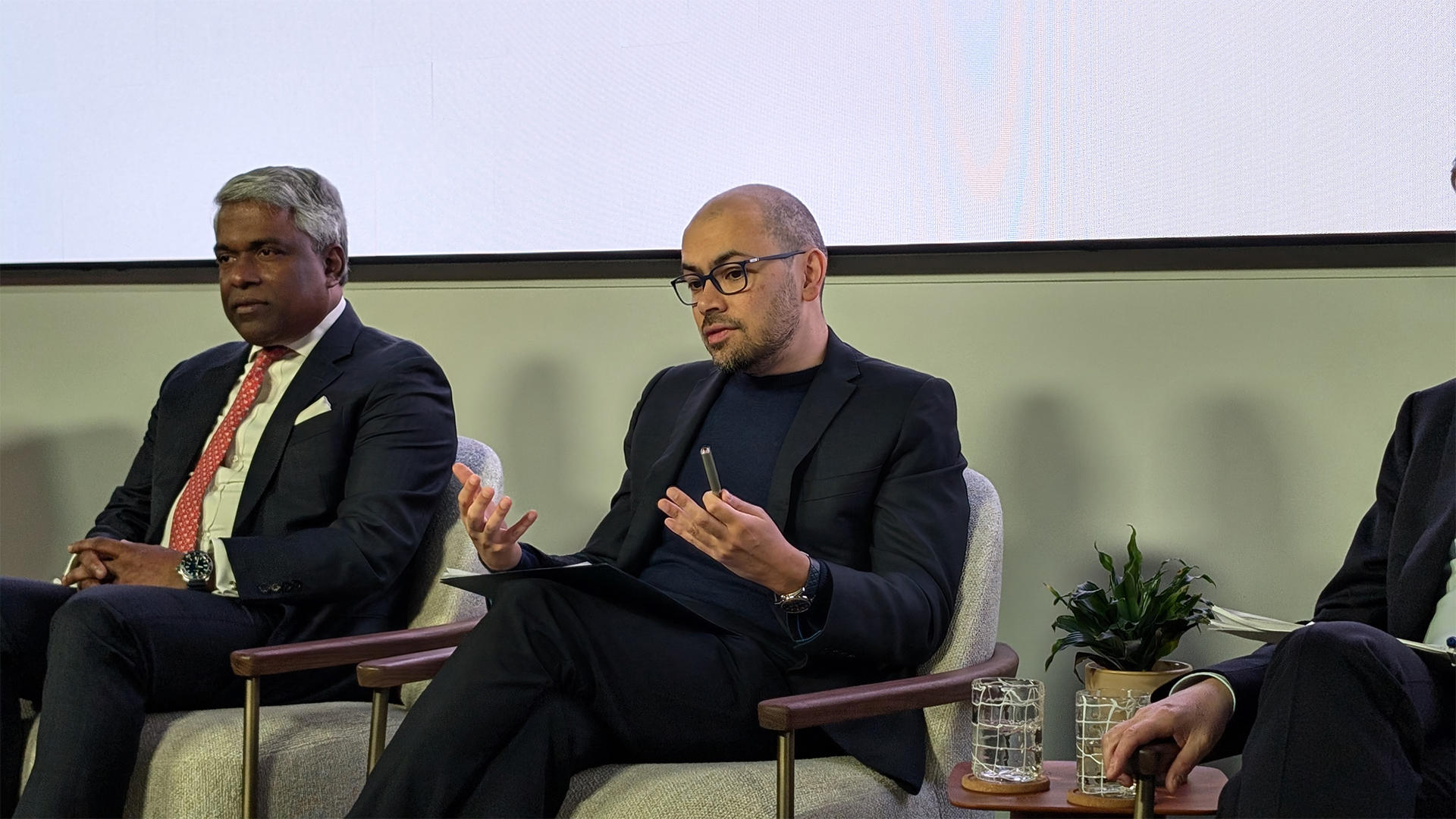 Google DeepMind’s Demis Hassabis says AI isn’t a ‘silver bullet’ – but within five to ten years its benefits will be undeniable
Google DeepMind’s Demis Hassabis says AI isn’t a ‘silver bullet’ – but within five to ten years its benefits will be undeniableNews Demis Hassabis, CEO at Google DeepMind and one of the UK’s most prominent voices on AI, says AI will bring exciting developments in the coming year.
By Rory Bathgate Published
-
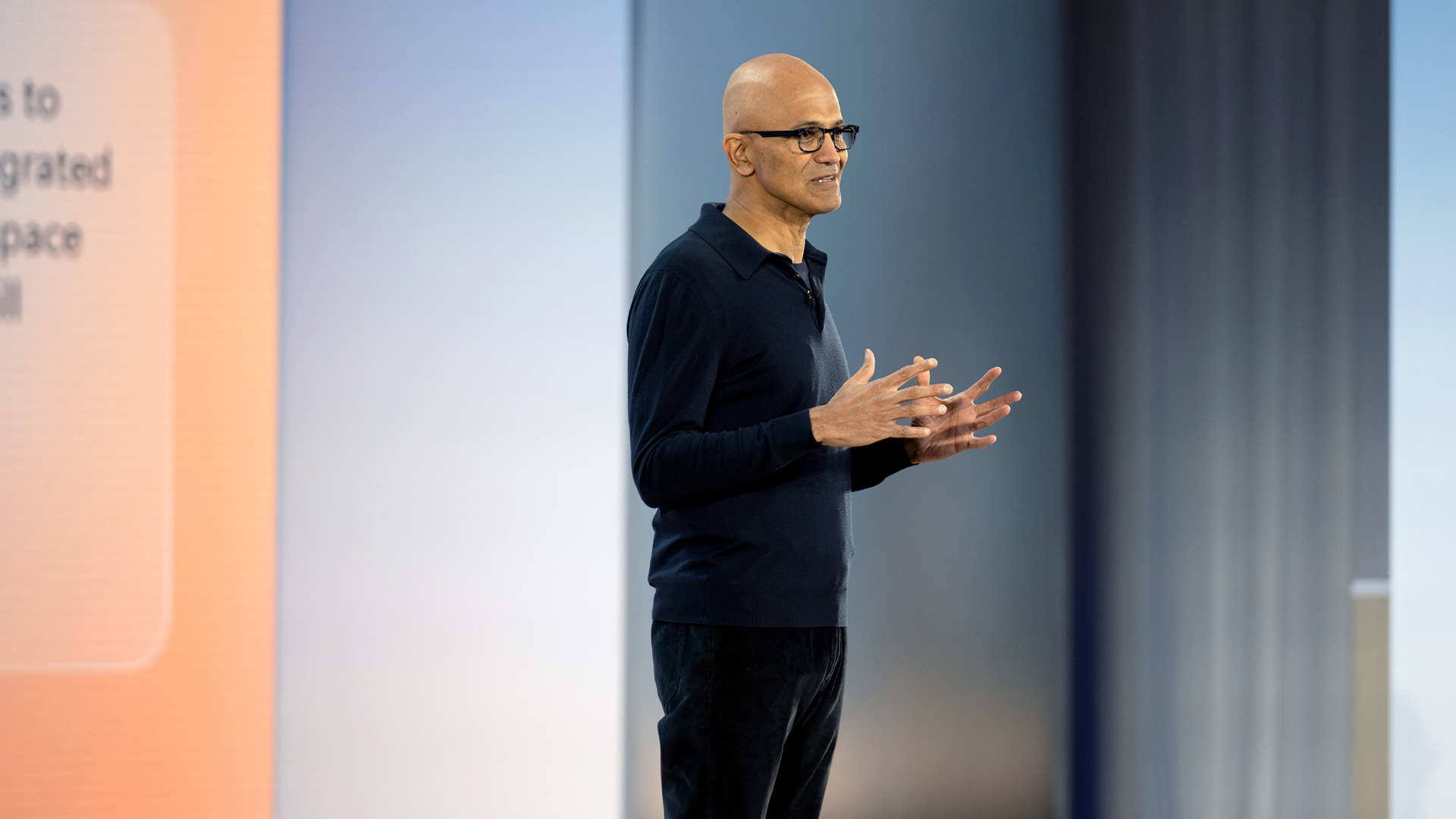 ‘The entire forecasting business process changed’: Microsoft CEO Satya Nadella says Excel changed the game for enterprises in 1985 – he’s confident AI tools will do the same
‘The entire forecasting business process changed’: Microsoft CEO Satya Nadella says Excel changed the game for enterprises in 1985 – he’s confident AI tools will do the sameNews The Microsoft CEO says we need to change how we measure the value of AI
By George Fitzmaurice Published
-
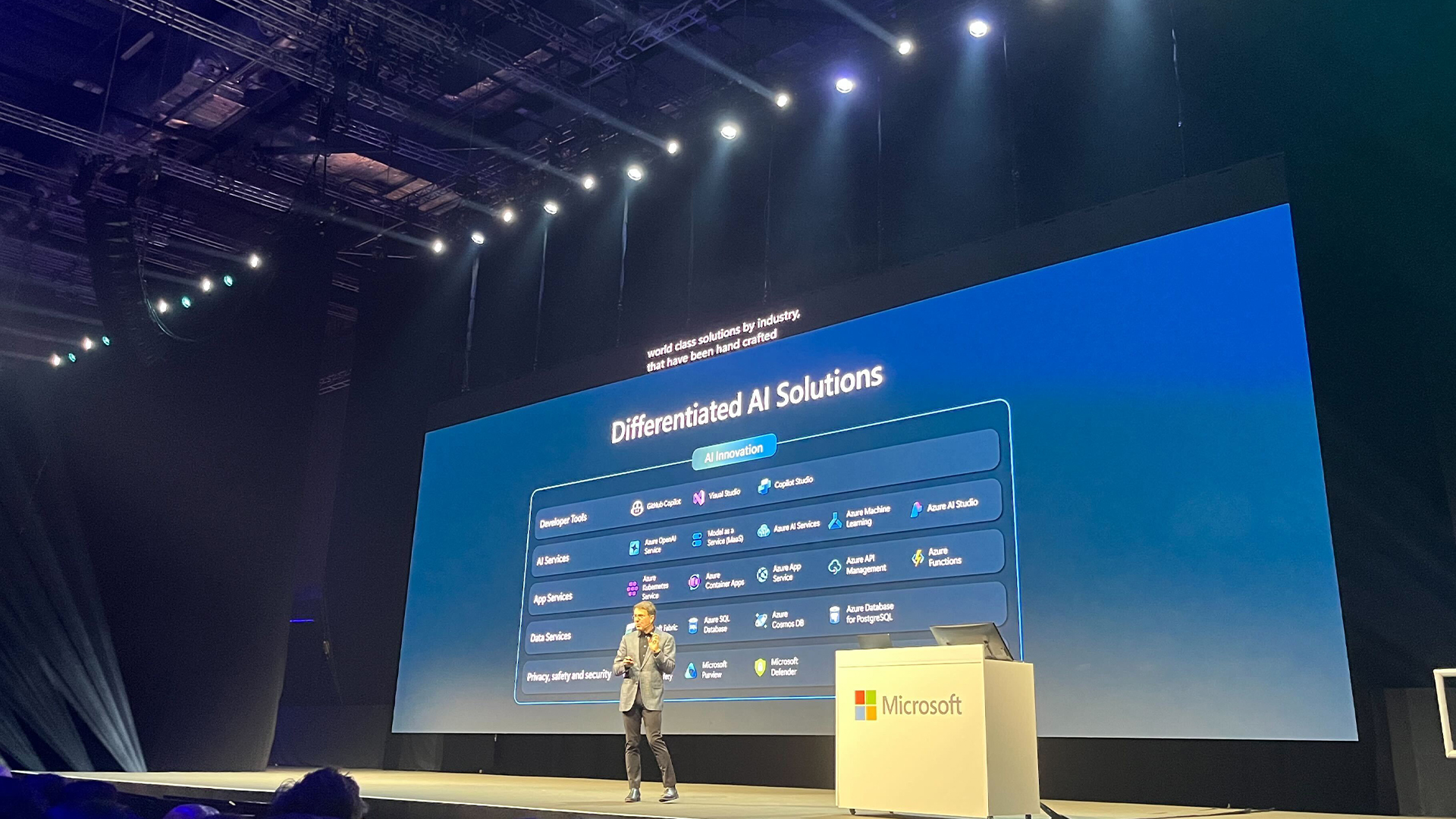 Microsoft exec touts benefits of AI productivity gains
Microsoft exec touts benefits of AI productivity gainsNews Microsoft CCO Judson Althoff said the company is unlocking significant efficiency gains from AI tools internally.
By George Fitzmaurice Published
-
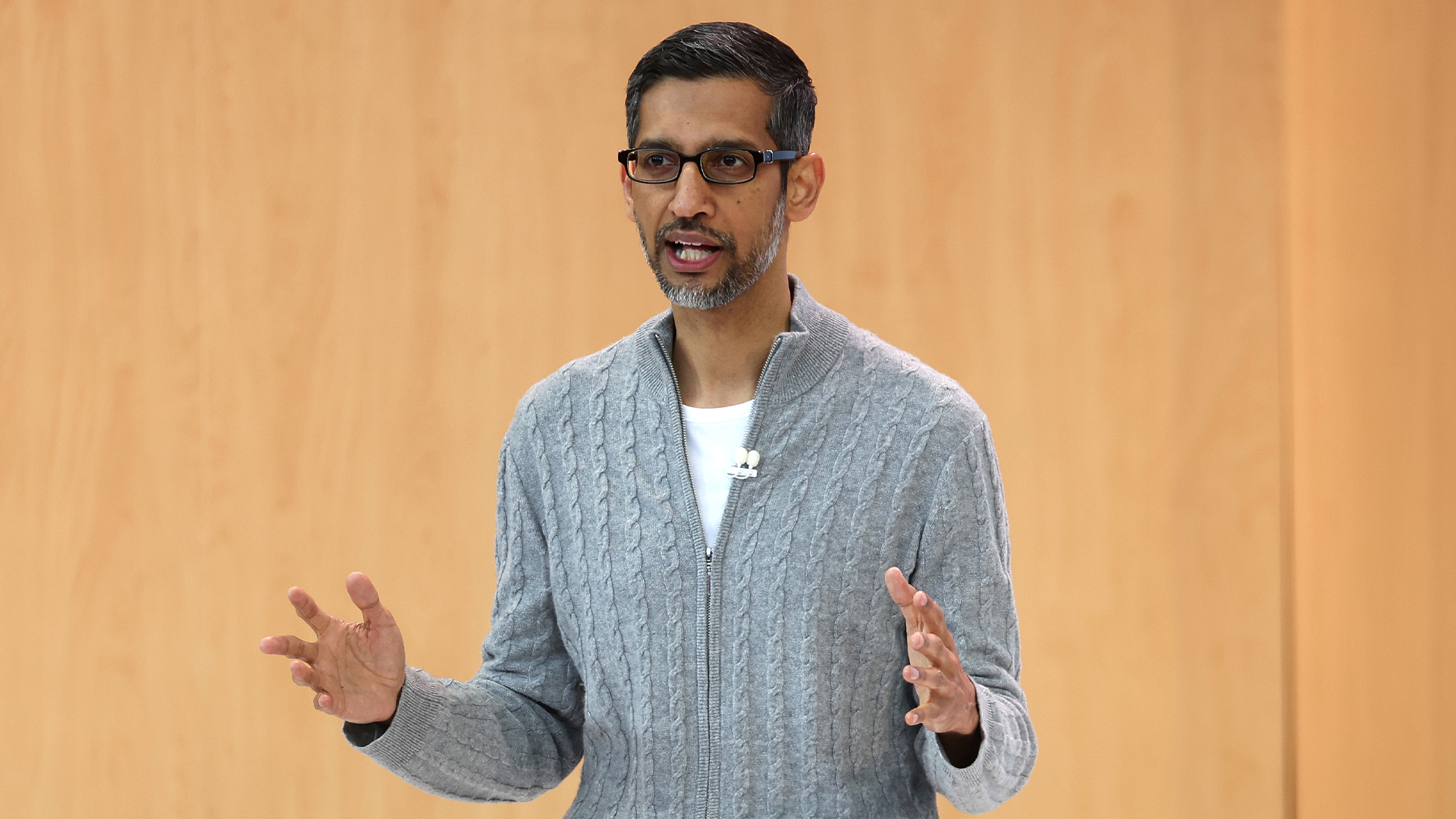 Google CEO Sundar Pichai says DeepSeek has done ‘good work’ showcasing AI model efficiency — and Gemini is going the same way too
Google CEO Sundar Pichai says DeepSeek has done ‘good work’ showcasing AI model efficiency — and Gemini is going the same way tooNews Google CEO Sundar Pichai hailed the DeepSeek model release as a step in the right direction for AI efficiency and accessibility.
By Nicole Kobie Published
-
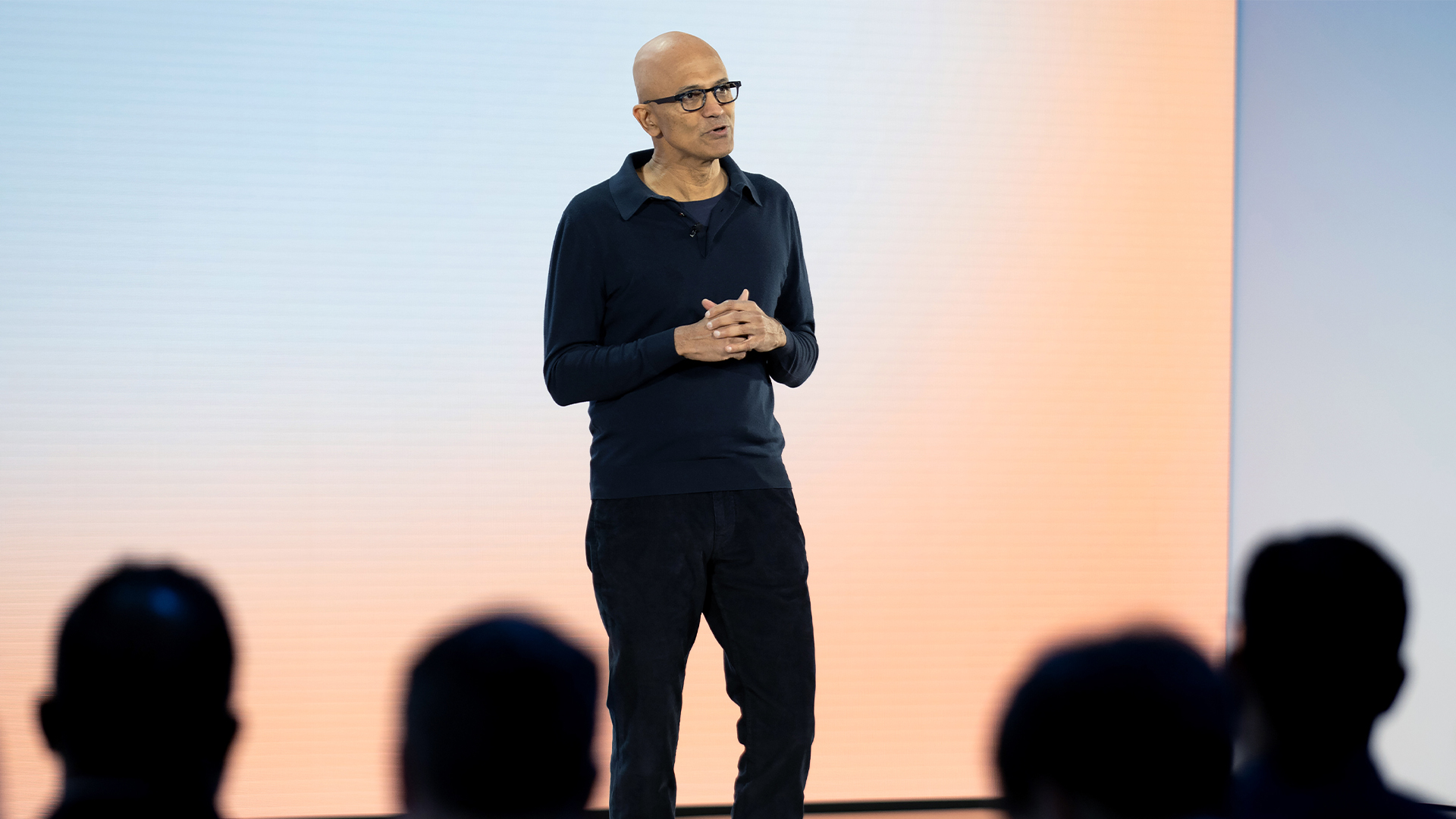 ‘We’ve created an entirely new state of matter’: Satya Nadella hails Microsoft’s 'Majorana' quantum chip breakthrough
‘We’ve created an entirely new state of matter’: Satya Nadella hails Microsoft’s 'Majorana' quantum chip breakthroughNews Microsoft has unveiled a new chip it says could deliver quantum computers with real-world applications in ‘years, not decades'.
By Emma Woollacott Published
-
 Microsoft says AI tools such as Copilot or ChatGPT are affecting critical thinking at work – staff using the technology encounter 'long-term reliance and diminished independent problem-solving'
Microsoft says AI tools such as Copilot or ChatGPT are affecting critical thinking at work – staff using the technology encounter 'long-term reliance and diminished independent problem-solving'News Research from Microsoft suggests that the increased use of AI tools at work could impact critical thinking among employees.
By Nicole Kobie Published
